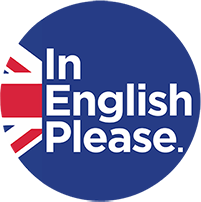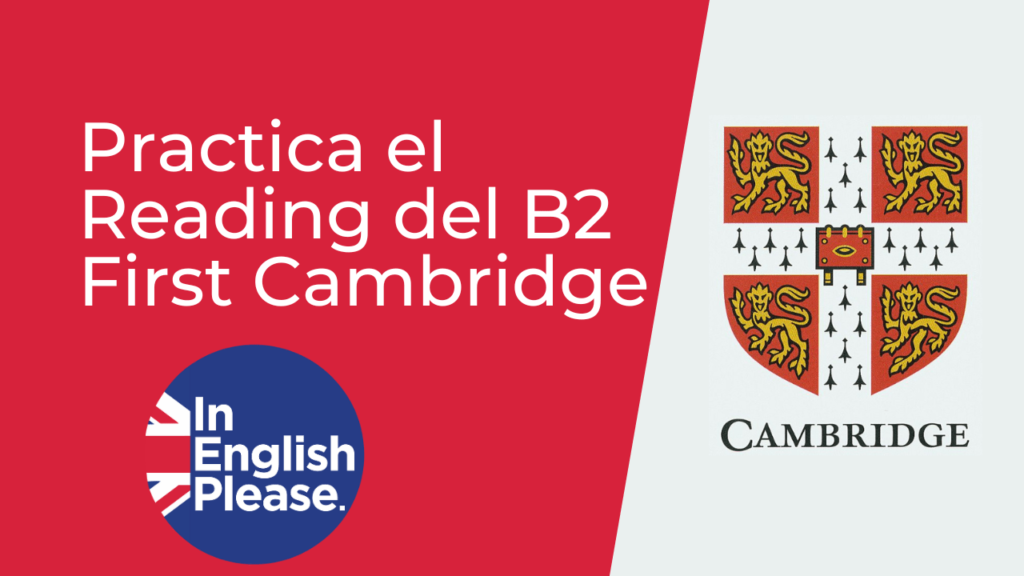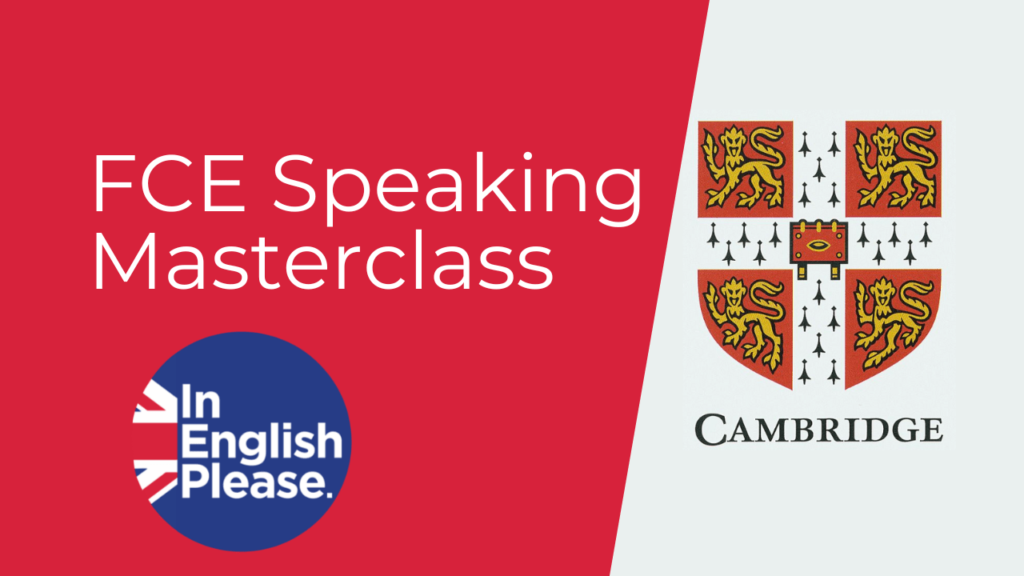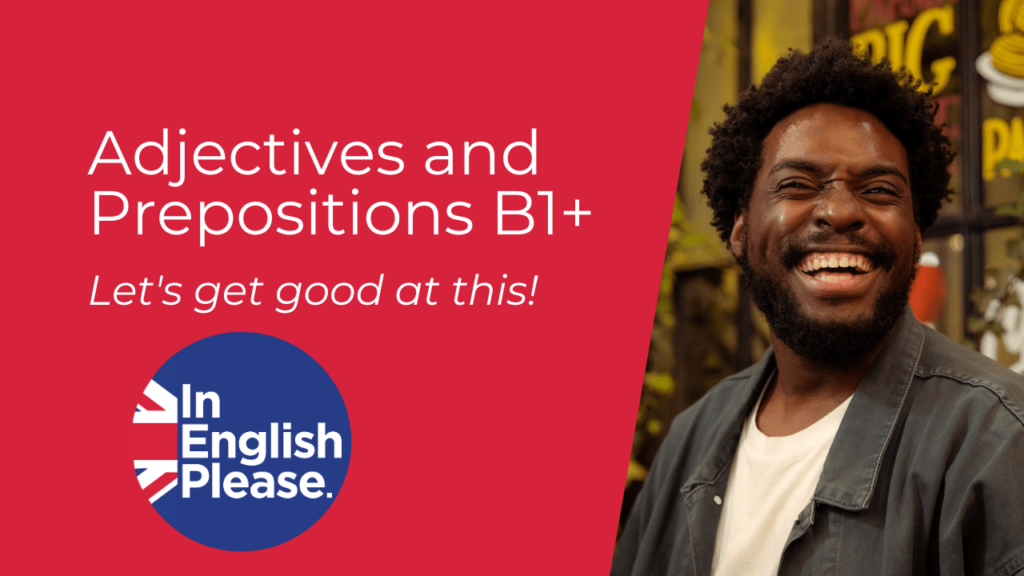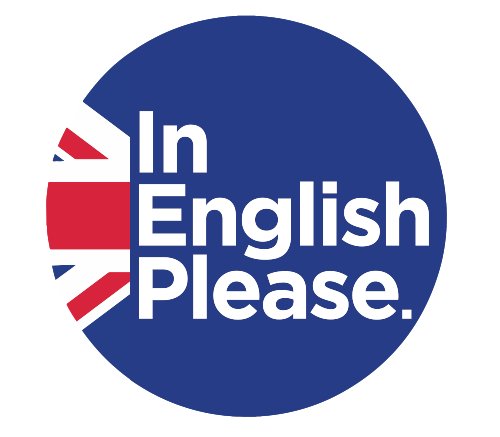
Written by Irene Quesada

¿Qué son las Question Tags en inglés?
Las question tags en inglés son para verificar o confirmar información, hacer aclaraciones y en general son muy útiles en cualquier conversación. ¿Sabes utilizarlas bien? Vamos a ver una explicacion breve y ejemplos de cómo utilizar question tags para que quede muy claro. Las question tags se suelen estudiar en el B1 de inglés. Si quieres conocer tu nivel, haz esta prueba de nivel de inglés gratis con resultados inmediatos.
Mondays are difficult, aren’t they? → Aquí hay una question tag, que es: “aren’t they?”.
Pero, ¡cuidado!
En español, añadiríamos ¿no? al final de la oración, pero en inglés es diferente. Veamos cómo funcionan:
❌ This is the book, no? Incorrecto
✔️ This is the book, isn’t it? Correcto
Lo primero para utilizar de manera correcta las question tags en inglés es mirar el verbo principal. Primero vamos a ver ejemplos de question tags con el verbo to be.
He is happy, isn’t he?
They are doctors, aren’t they?
It is cold today, isn’t it? (Haz clic aquí para aprender a decir “hace frío” en inglés)
She was at the party, wasn’t she?
¿Ves el patrón que sigue? Se invierte el sujeto y el verbo al final. ¿Y si la frase es negativa? Muy fácil:
He isn’t happy, is he?
They aren’t doctors, are they?
It isn’t cold today, is it?
She wasn’t at the party, was she?
⚠️ Hay una excepción: la question tag que va con “I am” es “aren’t I”. Por ejemplo:
I’m right, aren’t I?
(Pero en negativo se mantiene) I am not late, am I?
Ejemplos de Question Tags con “have”
¡Si! Podemos hacer lo mismo con el verbo “have”.
You have finished your meal, haven’t you?
She has visited London, hasn’t she?
They have seen that movie, haven’t they?
We’ve eaten lunch, haven’t we?You haven’t met him before, have you?
She hasn’t been to Paris, has she?
They haven’t completed the project yet, have they?
We haven’t visited that museum, have we?
Ejemplos de Question Tags con modal verbs
Las question tags también pueden ir con los verbos modales “will,” “would,” “can,” o “could”. Funcionan de la misma manera, mira estos ejemplos:
She will come with us, won’t she?
We would like to help, wouldn’t we?
You can swim, can’t you?
They could solve the problem, couldn’t they?She won’t attend the meeting, will she?
They wouldn’t join the club, would they?
You couldn’t find your keys, could you?
They shouldn’t have left early, should they?
Ejemplos de Question Tags con el resto de los verbos
¡Es fácil! En este caso, la question tag se forma con “don’t” o “doesn’t”.
You understand the lesson, don’t you?
They like to dance, don’t they?
She speaks French, doesn’t she?
We enjoy the beach, don’t we?You don’t like chocolate, do you?
They don’t play soccer, do they?
She doesn’t watch horror movies, does she?
We don’t visit museums often, do we?
Con esto hemos visto un punto de la gramática inglesa muy fácil, pero que te dará mucha fluidez al hablar. Si quieres repasar la gramática inglésa básica, mira estos cursos de inglés online correspondientes a los niveles A1 y A2. Si quieres aprender más gramática y vocabulario en inglés consulta nuestro blog o contáctanos para encontrar a un buen profesor de inglés para ti.
By the way, no solo somos buenos profesores de inglés sino también somos buenos estudiantes de español. Si ves un fallo en nuestro articulo, abajo nos puedes dejar un comentario con la corrección y la revisamos.
Posts Relacionados
Aprende 3 modales en inglés B1: Should, Would y Could – ejercicios PDF
Aprende a usar los verbos modales en inglés B1 Hablar correctamente en inglés no solo se trata de aprender vocabulario y estructuras (pero si quieres aquí te dejo algunos artículos para refrescar este contenido como Ejercicios de sinónimos y antónimos en ingles –...
It is done: Ejemplos de pasiva en inglés B2 y C1 – Avanzado
Ejemplos de pasiva en inglés B2 En un nivel B2, pasar de activa a pasiva requiere un conocimiento de gramática más avanzado, así que hemos preparado ejemplos de pasiva en inglés B2, para que te hagas una idea. También te invitamos a que eches un vistazo a nuestro...
La diferencia entre «a», «an» y «the» con ejercicios – PDF
Cómo usar y diferenciar a, an y the en inglés Conocer la diferencia entre a, an y the en inglés son fundamentales para construir frases correctamente, pero pueden ser un poco confusos al principio. Todos los alumnos del inglés tienen que pasar por esta fase: cómo usar...
